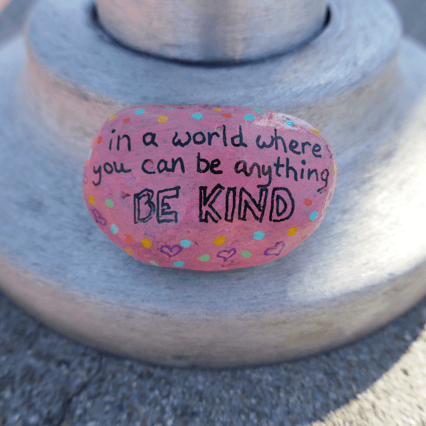It is scientifically proven that practicing gratitude can improve our immune, heart and brain health, and significantly elevate mood and lower our stress.
If done as a regular practice until it becomes a habit, gratitude can radically shift our well-being, sense of purpose and the health of our relationships. And it costs nothing but our intention and time!
When we think of gratitude, we might be reminded of a specific activity such as “random acts of kindness” or the holiday season. But what’s great about gratitude is that it can be practiced whenever we like. When we exercise gratitude, we not only give to others, but give back to ourselves.
.png?width=426&height=426&name=neurofeedbacktraining.com%20(3).png) Wonder How Much Gratitude You Have?
Wonder How Much Gratitude You Have?
Studies have shown that people who feel grateful tend to take better care of their bodies: they are motivated to exercise more and eat a healthier diet, and are less likely to smoke and abuse alcohol. Gratitude is also tied to better sleep. Sleep disturbance is often related to feeling mentally and emotionally overwhelmed. Researchers have discovered that when falling asleep, positive thoughts from gratitude leave less room for negative ones, promoting longer lasting and healthier sleep.
Learning how much gratitude you have and in what areas you can practice it can help you reap the benefits. Take this short quiz by the Greater Good Science Center at Berkeley University. You'll learn more about yourself and areas where it's easy to be appreciative and those that are difficult.

Does "Gratitude" Make Your Eyes Roll?
For some people, the idea of practicing gratitude brings up resistance, such as feeling its "touchy feely" or not possible to achieve. Because identifying gratitude involves sifting through thoughts and emotions from the past, mental roadblocks are common and natural. If that's you, start your exploration with this article.
Once you get past the roadblocks, gratitude offers a number of psychological health benefits. From increased self-confidence to emotional resilience, gratitude elevates our mood and acts as a buffer against stressful situations. At the end of the day, gratitude is ultimately tied to our happiness and fulfillment, whether in the workplace or in our relationships.
Related Article:
How Does the Brain Get Re-Wired From Practicing Gratitude?
.png?width=474&height=474&name=neurofeedbacktraining.com%20(5).png)
Studies show that the brain produces more of the neurotransmitters connected with positive emotions: serotonin, dopamine, and oxytocin. It also activates and strengthens the part of the pre-frontal cortex that manages our social abilities and inhibits negative emotions.
Not only can gratitude lead to immediate positive effects in the brain but is also linked to lasting effects. One study looking at brain scans of those who wrote gratitude letters and those who didn’t showed increased activity in the medial prefrontal cortex, an area of the brain involved in learning. These scans were also taken 3 months after the writing activity while participants experienced gratitude in the scanner. This suggests that practicing gratitude is a learning process that the brain remembers!
How to Begin Practicing Gratitude?
The good news is that there are many ways to effectively practice gratitude. The first step is to have an expectation that new habits take time. For example, set an expectation that you'll practice gratitude 5 minutes a day for 3 weeks. It takes 21 days for a new habit to form. Patience is key as the benefits of gratitude may take time and persistence to kick in! Read below for ideas on different kinds of gratitude practices.
Meditations on Gratitude
There are a lot of guided meditations on YouTube that focus on cultivating gratitude. Here are a couple to try.
Gratitude Journal
.png?width=459&height=459&name=neurofeedbacktraining.com%20(1).png) Is writing an enjoyable way for you to engage? Try spending 5 minutes a day writing about appreciation and gratitude. Here are some prompts:
Is writing an enjoyable way for you to engage? Try spending 5 minutes a day writing about appreciation and gratitude. Here are some prompts:
- What's a moment that made you smile?
- Who are the people / animals in your life whom you appreciate?
- What's a small kindness you did for someone recently?
Studies have shown that writing down the things you are grateful for can condition the brain to be more appreciative, generating even more gratitude. In addition to writing, adding visual reminders such as taking pictures of people, places and events can help us reinforce the practice and benefits of gratitude. Thinking about what we’ve appreciated in the past can positively impact our present experiences and beyond.
Teaching Gratitude to Kids

Research shows grateful pre-teens and teens are more satisfied with their lives, are more engaged in their schoolwork, get better grades and engage in extracurricular activities. They are emotionally healthier, less jealous and depressed than their peers.
Grateful teens are also likely to have healthier eating habits as shown by a study involving gratitude writing prompts. This is important as eating routines in adolescence can impact health across the lifespan. For example, consuming fruits and vegetables in childhood may protect against future illness in adulthood. Gratitude not only positively influences several physical and psychological outcomes but creates a ripple effect within these outcomes over time.
The science is clear on gratitude: from exercising more to feeling more productive, practicing gratitude leads to a number of positive outcomes. And all it takes is 5 minutes a day, such as visualizing an event or person you feel grateful for before bed. No matter your age or circumstances, gratitude practice can help boost resilience and happiness.